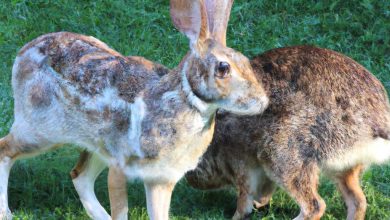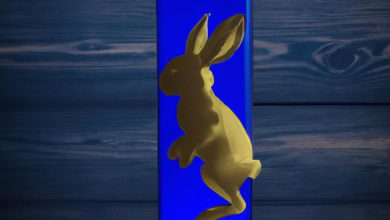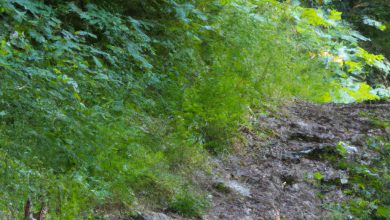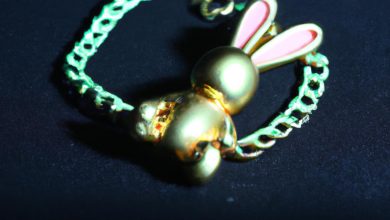What Do You Call a Rabbit with Fleas? A Comprehensive Guide
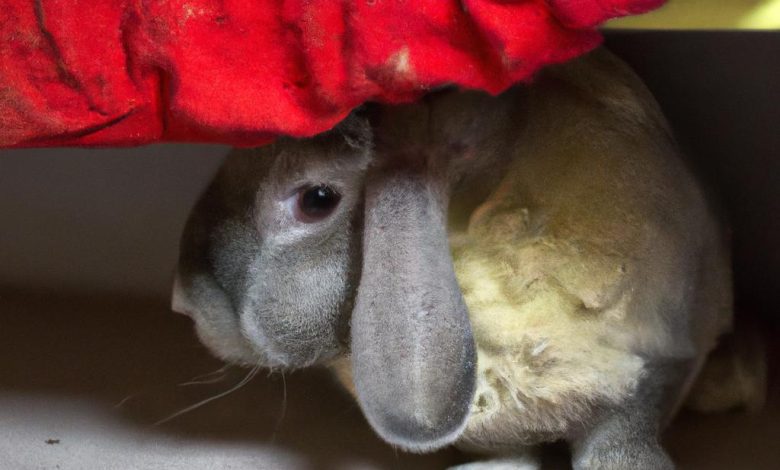
Do you have a furry little friend hopping around your home? If so, you may have found yourself wondering, “what do you call a rabbit with fleas?” It’s a common question for rabbit owners, and for good reason. Fleas can cause significant discomfort and health issues for your pet, so it’s essential to know how to identify and treat fleas on rabbits.
In this comprehensive guide, we’ll explore everything you need to know about fleas on rabbits. From understanding what fleas are and how they affect rabbits to identifying and treating flea infestations, we have you covered. Rabbitfact‘ll also discuss tips for preventing fleas on rabbits and common mistakes to avoid.
So, whether you’re a seasoned rabbit owner or considering adopting a bunny, read on to discover the answers to your flea-related questions.
Understanding Fleas
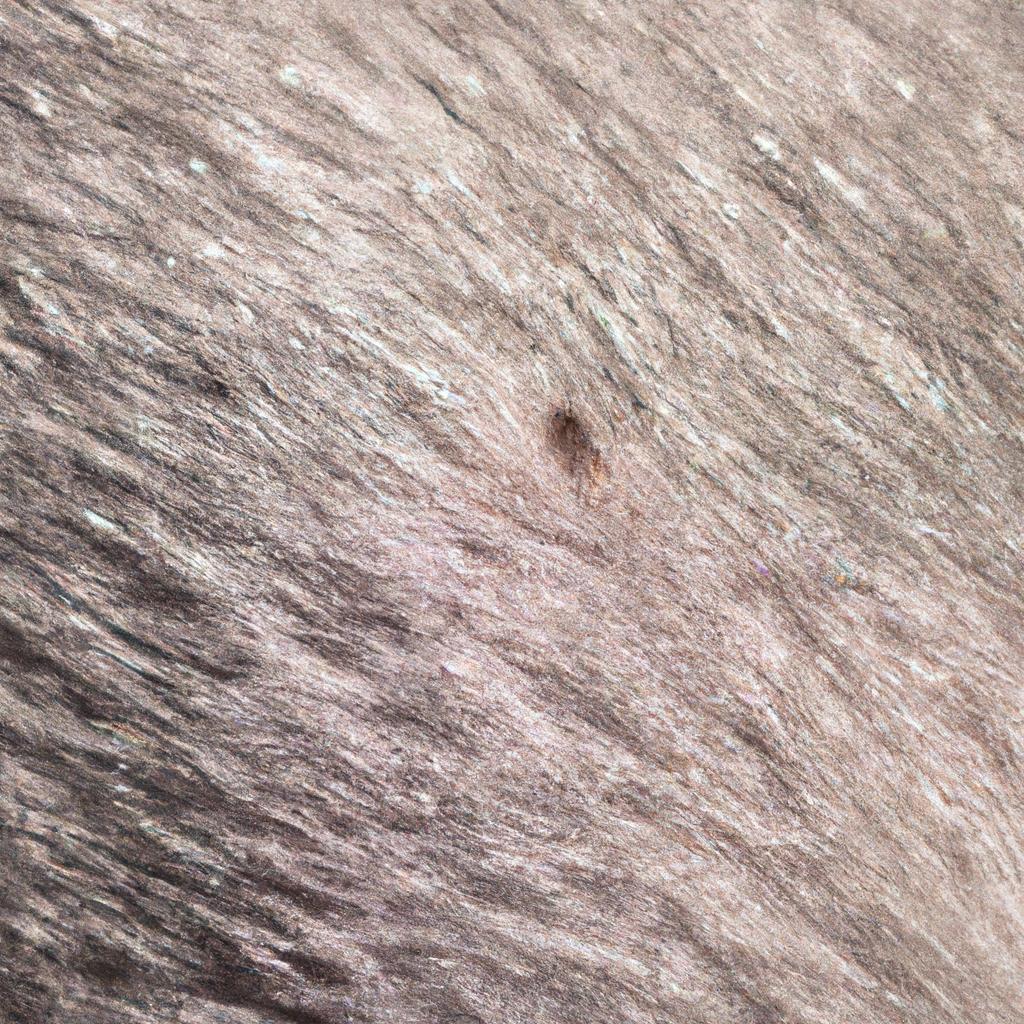
Fleas may be tiny, but they can cause significant discomfort for both humans and animals. These small, wingless insects are parasites that feed on the blood of mammals, including rabbits. But what exactly are fleas, and how do they affect rabbits?
What are fleas?
Fleas are external parasites that survive by feeding on the blood of mammals. They have a hard, flat body that allows them to move easily through an animal’s fur and skin. Fleas reproduce quickly, with females laying up to 50 eggs per day, which can lead to a significant infestation in a short amount of time.
How do fleas affect rabbits?
Fleas can cause a range of health issues for rabbits. The bites themselves can be itchy and uncomfortable, leading to scratching and potential skin infections. In severe cases, fleas can also cause anemia, which can be life-threatening for rabbits.
Symptoms of flea infestation in rabbits
It’s essential to know the signs of flea infestation in rabbits so you can identify and treat the problem promptly. Some common symptoms of flea infestation in rabbits include:
- Scratching and biting at the skin
- Red, irritated skin
- Hair loss or thinning
- Small, dark specks (flea dirt) on the fur
- Irritated or infected ears
If you notice any of these symptoms, it’s important to take action to treat the fleas and prevent further infestation.
Identifying Fleas on Rabbits
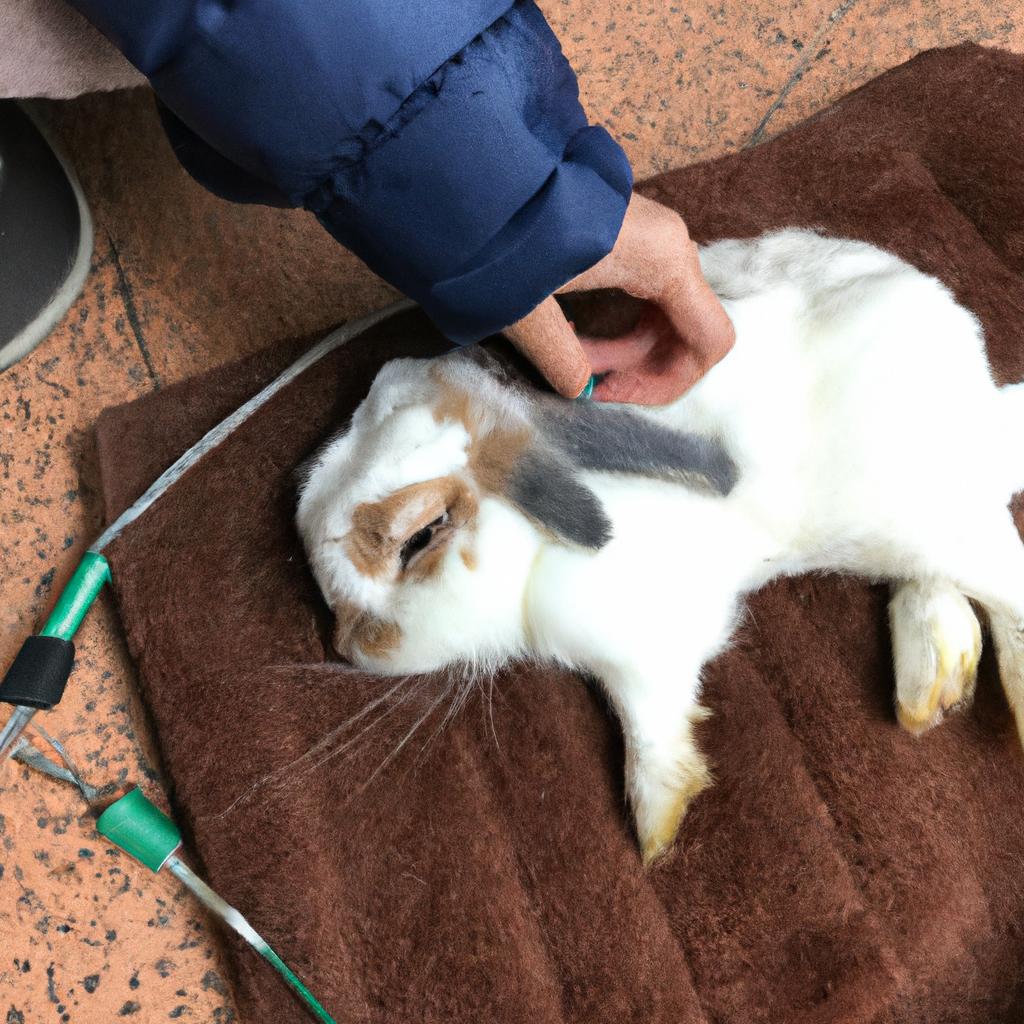
Flea infestations can be uncomfortable and even dangerous for rabbits, so it’s important to know how to identify them. Here are some key ways to identify fleas on rabbits:
How to check for fleas on rabbits
The best way to check for fleas on rabbits is to perform a thorough inspection of their fur. Use a flea comb to carefully comb through their coat, paying close attention to areas where fleas are most commonly found. These include around the base of the tail, on the belly, and behind the ears.
Common areas where fleas are found on rabbits
Fleas tend to congregate in areas where the fur is thickest, such as around the rabbit’s neck and head. They also tend to favor warm, moist areas, so it’s important to check your rabbit’s fur regularly to prevent infestations.
Differences between flea bites and other skin conditions in rabbits
Flea bites on rabbits can be difficult to distinguish from other skin conditions, such as mites or allergies. However, flea bites tend to be small and red, and they often appear in clusters. If you notice your rabbit scratching excessively or developing skin lesions, it’s important to consult with your veterinarian to determine the cause of the issue.
By knowing how to identify fleas on rabbits, you can take prompt action to treat and prevent infestations, keeping your furry friend comfortable and healthy.
Treating Fleas on Rabbits
Flea infestations can cause significant discomfort for rabbits, so it’s crucial to treat them promptly. Ignoring fleas on your pet can lead to more serious health issues, such as anemia and skin infections. Here’s what you need to know about treating fleas on rabbits.
Importance of Treating Flea Infestations Promptly
If you suspect that your rabbit has fleas, it’s essential to take action quickly. Fleas can breed rapidly, and a small infestation can quickly turn into a widespread problem. Additionally, fleas can transmit diseases to your pet, so it’s crucial to eliminate them as soon as possible.
Types of Flea Treatments for Rabbits
There are several types of flea treatments available for rabbits, including topical treatments, oral medications, and flea collars. Topical treatments are typically applied to the skin between the rabbit’s shoulder blades, while oral medications are given by mouth. Flea collars can be worn around the neck and release flea-repelling chemicals.
It’s important to consult with your veterinarian before administering any flea treatment to your rabbit. Some treatments may not be suitable for all rabbits, depending on their age, weight, and overall health.
How to Administer Flea Treatments to Rabbits
Administering flea treatments to rabbits can be challenging, especially if your pet is not used to being handled. It’s important to follow the instructions provided with the treatment carefully. You may need to hold your rabbit securely while applying the treatment or administering oral medication.
If you’re unsure about how to administer flea treatments to your rabbit, consult with your veterinarian. They can provide guidance and demonstrate the proper technique to ensure that your pet is treated safely and effectively.
Preventing Fleas on Rabbits
As the saying goes, prevention is better than cure. This is especially true when it comes to fleas on rabbits. While treating flea infestations is essential, it’s always better to avoid them in the first place. Here are some tips for preventing flea infestations in rabbits:
Tips for Preventing Flea Infestations in Rabbits
- Regular grooming: Regular grooming is essential for maintaining good hygiene and health in rabbits. It also helps to prevent flea infestations by removing any fleas and their eggs before they have a chance to multiply. Use a flea comb to help remove fleas and their eggs from your rabbit’s fur.
- Keep your rabbit’s living area clean: Fleas thrive in dirty environments, so it’s important to keep your rabbit’s living area clean. Regularly clean and disinfect your rabbit’s cage or hutch, and replace any dirty bedding.
- Vacuum your home regularly: Fleas can easily spread from your rabbit’s living area to the rest of your home. Vacuuming your home regularly, especially in areas where your rabbit spends time, can help to remove any fleas or eggs that may have spread.
- Use flea prevention products: Flea prevention products such as topical treatments, sprays, and collars can also be used to prevent flea infestations in rabbits. Always consult with your veterinarian before using any flea prevention products on your rabbit.
Importance of Maintaining Good Hygiene for Rabbits
Maintaining good hygiene for rabbits is crucial for preventing flea infestations and promoting overall health. Regular grooming, cleaning your rabbit’s living area, and providing clean water and food are all essential for keeping your rabbit healthy and free from fleas.
Common Mistakes to Avoid When Preventing Fleas on Rabbits
While preventing flea infestations is essential, there are also some common mistakes to avoid. These include using flea products designed for other animals, not following the instructions for flea prevention products, and not treating all of your pets for fleas. It’s important to always follow the instructions for any flea prevention products you use and consult with your veterinarian before administering any new products to your rabbit.
Conclusion
Now that you know what to call a rabbit with fleas, it’s important to remember that prevention is key. Fleas can cause significant discomfort and health issues for your furry friend, so it’s crucial to take steps to prevent flea infestations.
Maintaining good hygiene for your rabbit is essential, which includes regular grooming and cleaning of their living space. Additionally, it’s crucial to use flea treatments as prescribed by your veterinarian and avoid common mistakes that can lead to flea infestations.
At rabbitfact.com, we’re committed to providing accurate and trustworthy information for rabbit owners. We hope this comprehensive guide has helped you understand everything you need to know about fleas on rabbits. If you have any questions or tips to share, please leave a comment below.
Thank you for reading, and remember to keep your furry friend flea-free!
Conclusion: So above is the What Do You Call a Rabbit with Fleas? A Comprehensive Guide article. Hopefully with this article you can help you in life, always follow and read our good articles on the website: rabbitfact.com
